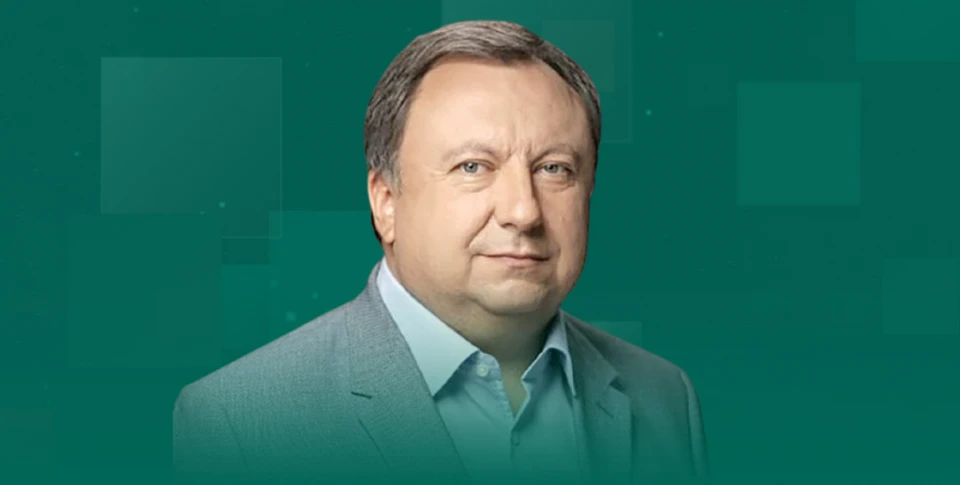
Europe should overcome fear of "escalation," invite Ukraine to NATO - MP Kniazhytskyi at Via Carpatia Forum
Trump will not stop helping Ukraine; Europe should stop fearing “escalation.” Key points from MP Mykola Kniazhytskyi's speech at the Via Carpatia Forum
Every crisis also presents an opportunity. This is the first lesson from the Russian-Ukrainian war and the conclusion drawn from the American elections.
The crisis is deep, and U.S. leadership is being questioned on multiple fronts: geopolitically, militarily, economically, and in terms of its core values. America is questioning its foundational principles: to be a democratic republic, to uphold the rule of law, to lead the Euro-Atlantic community, and to maintain a world order based on international law. If the U.S. were to abandon these principles, it would cease to be a great power, or even a state. America was built on the ideals of freedom and democracy - if it denies these, it would effectively be declaring its own end.
Lesson two. The Kremlin hopes Trump will play the role of a disruptor, aiming to destroy Ukraine, NATO, the EU, and the global order. Trump himself views himself as part of an elite club of “brilliant people,” as he called Xi Jinping.
The key question is whether American democracy can hold up under these challenges. Are its institutions strong enough to withstand efforts to introduce an authoritarian regime?
Democrats, including President Joe Biden, responded positively to these questions. They accepted the election results, giving Trump and the Republicans a chance to move forward with their agenda without delay. Nothing will stand in their way - except the Constitution, the law, and the core values of American democracy. And, of course, their own understanding of national interests.
After January 20, 2025, Trump and the Republicans will first have to confront the challenge of responsibility - the foundation of freedom and democracy. This is the “punishment” for populists who seek to undermine core values and institutions.
The third lesson is the collapse of the myth of American isolationism. President Trump will not pull the U.S. out of the Middle East or abandon Israel. America will also not withdraw from Southeast Asia, nor will it leave Taiwan, South Korea, Japan, Australia, or New Zealand to fend for themselves - no matter what Elon Musk says about it.
Trump's "isolationism," on the other hand, has a direct impact on Europe and Ukraine. It was surprising and alarming from 2016 to 2020, when Europe struggled to understand the new direction of American foreign policy. Today, however, Europe has a clearer understanding and has made preparations for it.
European leaders are already offering Trump incentives to avoid a trade war within the Euro-Atlantic community. Whether this will be enough to prevent it remains uncertain.
As French President Emmanuel Macron and former European Central Bank President Mario Draghi have said, for Europe to survive, it must strengthen itself and achieve "strategic autonomy" - meaning it needs to become technologically independent of both the United States and China.
General Valerii Zaluzhnyi spoke in detail about the military aspect of this challenge to European politicians, diplomats, and military leaders.
Lesson four: NATO remains strong and will continue to do so, although Washington may adjust its level of involvement in the defense of its European allies. Europe needs to take more responsibility for its own security, invest more in defense, and adopt a more strategic approach. This means moving past the fear of "escalation" in the war with Russia, inviting Ukraine to join NATO, and accelerating preparations for Ukraine's EU membership.
Fifth lesson: Calls for a peace deal in Ukraine "within 24 hours," an immediate ceasefire, and threats to cut off U.S. aid are ultimately about Europe as a whole. Nearly all EU leaders recognize this reality. Because if Ukraine is "surrendered" today, other countries in Central and Eastern Europe will be next. This could lead to a new Yalta Agreement, marking the complete victory of Putin’s Russia.
So, no matter what happens in the U.S., the European Commission, the majority of the European Council, and the European Parliament will remain aligned with us. This is particularly important as we continue our integration with the EU, as making progress on European integration is a key part of both our victory and future peace.
The final lesson: I believe Trump will continue to help Ukraine, though much will depend on his personal decisions regarding foreign policy, defense, and security within his administration. The "Peace through Strength" formula, which comes from Michael Pompeo’s plan, could become a working model for Ukraine.
What remains constant is that Ukraine's victory, prospects for peace, and secure future depend primarily on us. It’s about the courage, professionalism, and creativity of the Ukrainian Armed Forces, the resilience of our people, the effectiveness of our government, and the development of our economy - especially the military-industrial complex. Given the external challenges, the need for unity among political forces is growing, rather than continuing small internal wars.
About the author. Mykola Kniazhytskyi, journalist, member of the Ukrainian parliament.
The editors don't always share the opinions expressed by the authors of blogs or columns.
- News














































